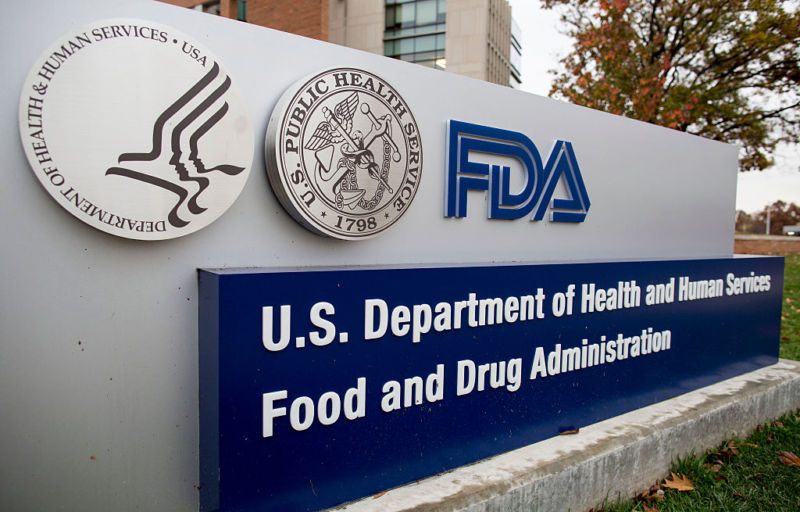
The Food and Drug Administration is considering holding off on reviewing Moderna’s COVID-19 vaccine for children under age 5 until it has data from Pfizer and BioNTech on their vaccine for young children. The plan would push back the earliest possible authorization for a vaccine in the age group from May to June—yet another blow to parents who are anxious to protect their young children as the rest of the country ditches pandemic precautions, despite recent upticks in cases.
The FDA’s plan to delay the review was first reported by Politico Thursday morning, with sources telling the outlet that FDA officials worry about green-lighting Moderna’s vaccine, only to find out just a few weeks later that Pfizer’s offers superior protection.
In an interview with CNN’s Kasie Hunt later in the day Thursday, top infectious disease expert Anthony Fauci confirmed that the regulator is considering waiting until summer, likely June, to authorize vaccines for kids under 5. Fauci said the delay was intended to avoid confusion about the vaccines, but he emphasized that he was not involved in the regulators’ decisions and couldn’t explain their thinking further.
Hunt, the parent of a young child, expressed the frustration many parents are feeling, asking Fauci, “If Moderna is ready to apply for that [Emergency Use Authorization], and we can have [the vaccine] in May, why can’t we have it in May?”
“I don’t have an answer to that, I’m sorry,” Fauci said.
Moderna is expected to apply for FDA authorization by the end of the month, putting the possibility of an authorization as early as May. Late last month, Moderna announced top-line results of a clinical trial finding that the company’s two-dose vaccine was safe for children ages 6 months to under 6 years and produced antibody responses similar to what we’ve seen in adults. Though the efficacy against an infection with the omicron variant was fairly low—37.5 percent to 44 percent—those efficacy numbers are unsurprising given omicron’s ability to evade vaccine-derived protection from the first-generation vaccines, which target the ancestral version of the virus. Still, protection from severe disease is expected to be strong based on the correlative protection seen in adults. As such, the company is moving forward with an authorization request for the two-dose regimen, even if additional booster shots are needed later.
Rollercoaster
Pfizer and BioNTech’s progress toward a vaccine for young children has been a rollercoaster ride by comparison. In December, the companies announced that for children ages 2 to under 5, its two-dose vaccine did not produce antibody levels similar to what has been seen in adults. In other words, the vaccine failed the primary objective of the study, dashing parents’ hopes of a vaccine authorization for the start of 2022. The companies said they would postpone requesting an FDA authorization and continue the trial with a third dose aimed at bolstering levels.
Then, amid the towering wave of omicron cases in January, Pfizer and BioNTech reversed course, saying they would pursue FDA authorization for their two-dose regimen. The implication was that amid the massive surge of cases, the companies collected data indicating that the two doses were, in fact, preventing COVID-19. But by mid-February, the companies did yet another about-face, abandoning plans to submit the two-dose regimen for FDA authorization. Instead, they returned to their earlier plan of waiting for data on the third dose. The move implied that as additional omicron data came in, any benefit of the two doses the companies may have initially seen in a small group of children had evaporated as more children became infected. Now, parents and regulators are left waiting for the third-dose data, which is expected in June.
In fitting with the FDA’s plan to delay reviewing Moderna’s vaccine, the regulator has apparently already asked independent experts on its advisory panel—which would vote on any authorizations before the FDA makes a final decision—to set aside several dates in June, including June 1, for a potential meeting, according to reporting from NBC News. The regulator had previously asked advisers to set aside dates in May, but those dates have been scrapped. The sources noted that the plans could still change, though, especially if cases of COVID-19 continue to rise in the US.
https://arstechnica.com/?p=1849876

